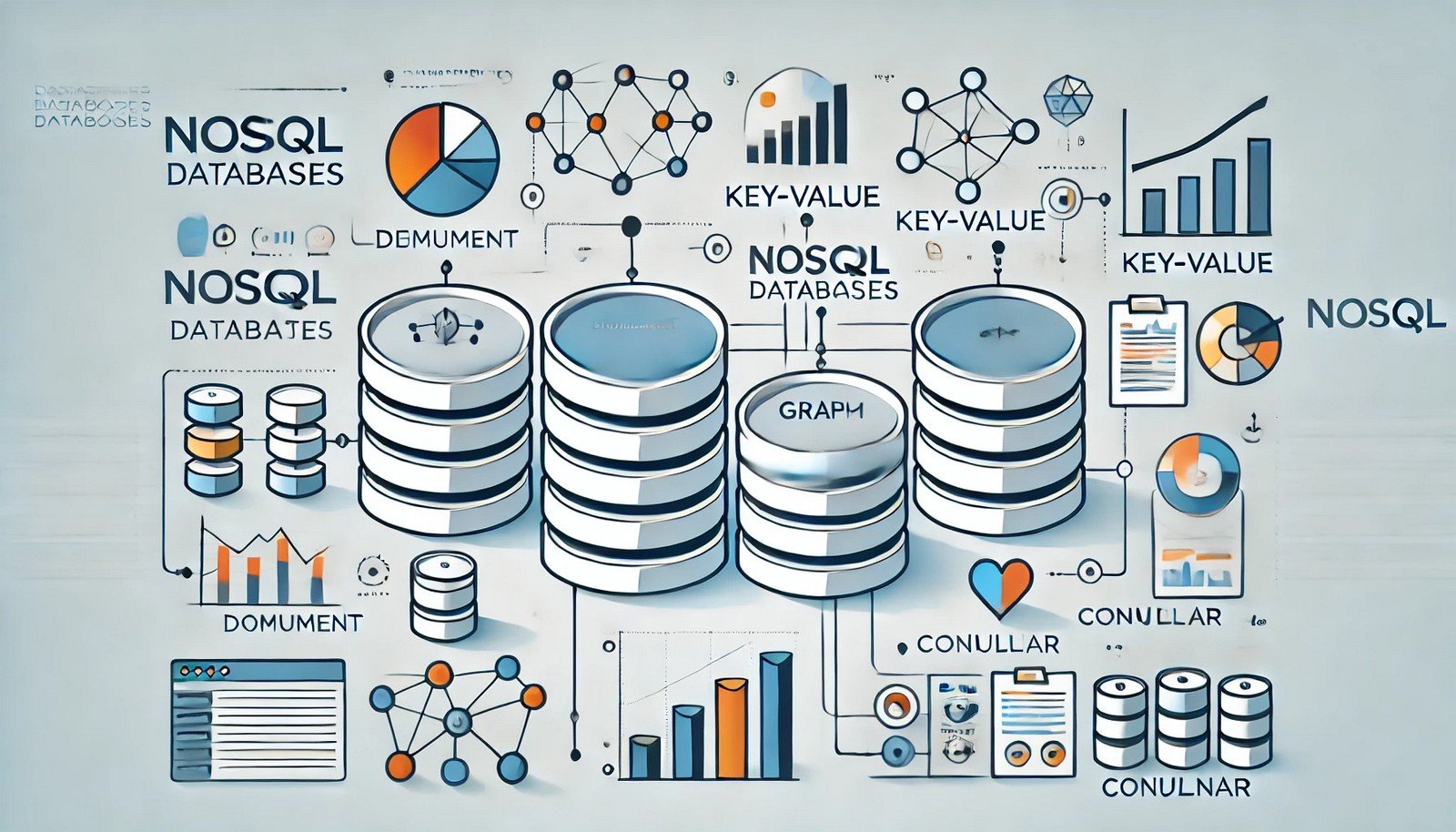NoSQL Database

(Representational Image | Source: Dall-E)
Quick Navigation:
- NoSQL Database Definition
- NoSQL Database Explained Easy
- NoSQL Database Origin
- NoSQL Database Etymology
- NoSQL Database Usage Trends
- NoSQL Database Usage
- NoSQL Database Examples in Context
- NoSQL Database FAQ
- NoSQL Database Related Words
NoSQL Database Definition
NoSQL databases are non-relational databases designed for specific data storage and management needs that go beyond the traditional tabular relationships of relational databases. They are optimized for a wide variety of data models, including document, graph, key-value, and column-oriented databases. Unlike traditional databases, NoSQL systems scale horizontally, making them suitable for handling large-scale, distributed, and unstructured data.
NoSQL Database Explained Easy
Imagine a giant cupboard where instead of arranging your toys in a specific order, you place them in different bins depending on their type. If you need a toy car, you just open the "car bin" instead of searching through rows and columns. NoSQL databases work in a similar way, organizing data in ways that make it faster to retrieve, depending on how it’s used.
NoSQL Database Origin
The concept of NoSQL databases emerged in the early 2000s, driven by the need to process the exponential growth of data generated by web and mobile applications. Early adopters like Google, Amazon, and Facebook led the innovation in this area to handle their unique challenges of scalability and performance.
NoSQL Database Etymology
The term “NoSQL” was first coined in 1998 as a tag for a non-relational open-source database but gained prominence around 2009 during meetups for scalable database solutions.
NoSQL Database Usage Trends
With the rise of big data, cloud computing, and IoT, NoSQL databases have seen a significant surge in adoption. Businesses favor NoSQL for use cases like real-time analytics, content management systems, and social media applications. Their ability to handle diverse data formats and scaling needs makes them a cornerstone of modern data-driven strategies.
NoSQL Database Usage
- Formal/Technical Tagging:
- Big Data
- Distributed Systems
- Scalable Databases - Typical Collocations:
- "NoSQL database architecture"
- "document-based NoSQL"
- "NoSQL scalability"
- "schema-less NoSQL"
NoSQL Database Examples in Context
- A document-oriented NoSQL database like MongoDB is used to manage user profiles in a social media application.
- Key-value stores like Redis are widely implemented in caching and session management systems.
- Columnar NoSQL databases like Cassandra are often chosen for real-time analytics in financial applications.
NoSQL Database FAQ
- What is a NoSQL database?
A NoSQL database is a non-relational database optimized for storing, retrieving, and managing data in formats other than tabular relations. - How do NoSQL databases differ from relational databases?
NoSQL databases do not use structured schemas or tables and often scale horizontally. - What are some popular NoSQL databases?
MongoDB, Redis, Cassandra, DynamoDB, and Couchbase. - When should I choose NoSQL over SQL?
Use NoSQL for unstructured data, high scalability needs, and real-time processing. - What are the types of NoSQL databases?
Document, graph, key-value, and column-family databases. - Are NoSQL databases secure?
Yes, with proper configurations and security protocols. - Can NoSQL handle transactions?
Many NoSQL databases support ACID transactions for specific use cases. - Is NoSQL faster than SQL?
It depends on the workload; NoSQL excels in large-scale and distributed systems. - Can I use NoSQL for analytics?
Yes, columnar NoSQL databases like Cassandra are designed for analytics. - What are the challenges of NoSQL?
Complexity in query design, data consistency issues, and lack of standardization.
NoSQL Database Related Words
- Categories/Topics:
- Big Data
- Cloud Computing
- Scalable Systems
Did you know?
CouchDB, one of the popular NoSQL databases, uses a concept called “eventual consistency” which ensures data accuracy across distributed systems over time, making it a pioneer for modern distributed architectures.
PicDictionary.com is an online dictionary in pictures. If you have questions or suggestions, please reach out to us on WhatsApp or Twitter.Authors | Arjun Vishnu | @ArjunAndVishnu

I am Vishnu. I like AI, Linux, Single Board Computers, and Cloud Computing. I create the web & video content, and I also write for popular websites.
My younger brother, Arjun handles image & video editing. Together, we run a YouTube Channel that's focused on reviewing gadgets and explaining technology.



Comments powered by CComment